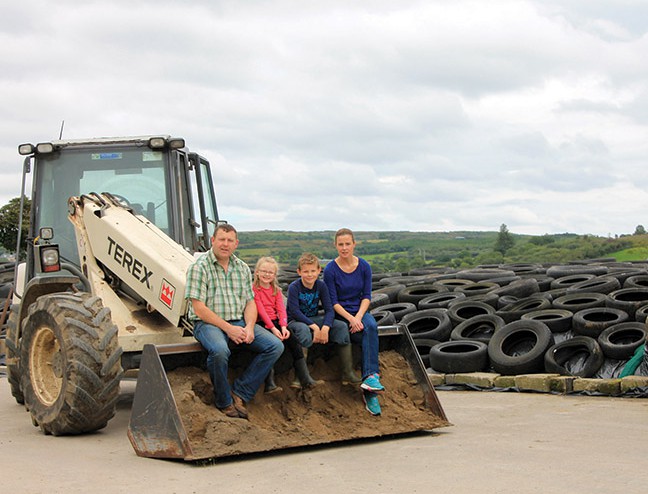
The Irish Farmers’ Association (IFA) represents every farmer in the country and it is a highly professional, well-resourced organisation whose record of delivery is the envy of many other representative bodies at home and in Europe. Central to the success and development of IFA is its structure.
The IFA has a mass membership base with over 88,000 farmers contributing to the Association. A strong united membership provides the strength and financial resources to ensure that the IFA delivers for Irish farmers.
The Association’s 946 Branches are recognised as the fundamental unit of the organisation, playing a vital role in IFA’s countrywide network, reaching into every parish across rural Ireland and maintaining our mass membership.
Each county has at least one representative that sits on a national committee and discuss matters at hand. In this month’s edition of Irish Tractor & Agri, we profile the Donegal representative Lawrence McNamee and he tells us about his role in the IFA and also about the trials and tribulations of farming in the north west of the country.
“I am the Donegal representative to the Dairy Committee and we would meet up to ten times a year to discuss any business at hand and as you can imagine, the abolishing of the milk quota has been at the forefront of discussions earlier this year,” said Lawrence.
“Of course, the price of milk is the main concern amongst our members at the moment as it has continuously dropped over the last 16 months or so.”
The current spate of milk price cuts started 16 months ago in May 2014. At the time, co-ops were paying around 39c/l including VAT for milk at 3.3% protein and 3.6% butterfat. Practically every month since then, farmers have suffered price cuts which are now totalling up to 13c/l, or over 33%.
Based on the 25.5c/l average production costs determined by the Teagasc’s 2014 National Farm Survey (reduced to 25c/l for 2015 in the 2015 Teagasc Outlook), this 33% milk price cut amounts to a 92% cut in the farmer’s margin. As the Teagasc production costs do not include the farmer’s own labour nor investment repayments, it is clear that the majority of farmers are now producing milk at a significant loss.
“The abolishing of the milk quota has been a huge plus in one sense as farmers can now grow their herds without fear of penalties, but the milk prices have to reflect that too though.”
Based in Convoy, Co Donegal, Lawrence has many issues to deal with on a regular basis with the weather being one of the main contentious areas.
“We seem to get a lot worse weather up here than in other parts of the country unfortunately. I am farming 180 acres and 60 of that would be leased, because there is no real room to expand where we are.
“The block of the land that is leased is 12 miles away from the homeplace, but we would have that leased for about ten years or so now.”
Lawrence milks 100 cows daily and he has built up the herd over the last five years to what it is today.
“I’ve added ten cows to the herd every year for the past five years. At this stage, I don’t think I have the capacity to add anymore, not for the time being at least.”
Of course, dealing with such adverse weather conditions means that there is only a small window of opportunity to get silage and other contracting jobs done during the summer months.
“It can be frustrating at times with the weather and once you get a good spell, you have to work fast. Wauchope Agri does the silage for me and they have been for a number of years now. They are professional at what they do and get the job done as quickly as possible.
“For the baling, McKnights would come in and they do are very good at what they do with top of the range machinery ensuring that they get through the work as efficiently as they can.
“I would have a mixture of wet and dry land, some of it would be very steep, while more is on the flat.”
Lawrence revealed that when it came to feed for his cattle, he tended to use nuts as he felt a better milk production can be achieved.
“I’d prefer to work with nuts over straights as farming has become a lot more scientific in recent years and you have to carefully choose what you feed your stock.”
A new Dairymaster tank has been installed to cater for the increase in the milk quota and Lawrence is happy with the way business is going despite the obvious drawbacks.
“It will be very hard to expand any further as I said, but you never know down the line. We just keep working away and there is not much else you can do.”
Lawrence is supported on the farm by his wife Louise and his two children Jack (9) and Aimee (7) as well as his mother Margaret.
Lawrence McNamee
Convoy,
Co Donegal.
Taken from Irish Tractor & Agri magazine Vol 3 No 8, September 2015